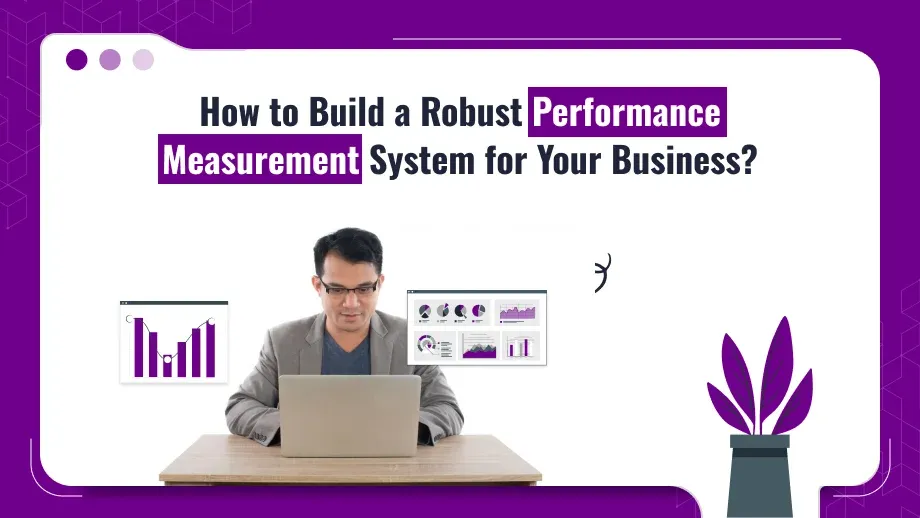
Performance management is an essential aspect of the success of an organization, covering many different activities created to make sure that employees are able to meet their expectations and help to achieve the goals of the company. This blog focuses on the complexities scope of performance management, its parts methods, as well as the positive effects it can bring to employers and employees.
Understanding the nature of management performance
It is a continual method that includes managing, planning, monitoring as well as improving the scope of performance management. It integrates personal goals with the organizational objectives, and ensures that all employees are working toward the same goal. Performance management is much more than traditional appraisals of performance and includes continuous feedback, coaching and the opportunity to develop.
The Importance of Performance Management
In the end, scope of performance management is all about maximising potential for both the teams and individuals within an organisation. A well-designed performance management system will not just assist employees to grow and enhance their capabilities, it can also help organizations reach the goals they set for themselves. When systems for managing performance have been properly implemented and implemented, they establish an atmosphere of continuous improvement, accountability and involvement.
Key Components of Performance Management
- Goal Setting: Creating specific, precise and realistic goals is crucial to the process of managing performance. They should be in line to the company’s goals which means that both the managers and employees should participate in the goal setting procedure. The involvement of employees helps to build trust and helps ensure that employees know what they can contribute to the company.
- Continuous Feedback: Modern performance management is vastly different from the traditional yearly or bi-annual performance review. In fact, continuous feedback is encouraged. This means that there will be frequent weekly check-ins between management and employees regarding any issues about performance, successes recognized in real-time.
- Performance Appraisals: Although continuous feedback is vital however, appraisals for performance are an essential part of the process of managing performance. The appraisals offer a thorough assessment of the performance of an employee during a particular time period. They also help to determine promotions, increases, or growth possibilities. scope of performance appraisal includes evaluating not just employees’ contributions, but also finding areas of development and enhancement.
- Develop Plans: Finding points for improvement and drafting individual development plans is essential to help employees grow. It could include programs for training or mentorship programs, as well as other sources to aid employees develop their talents and grow their career. Plans for development should be flexible and flexible to meet the evolving needs of employees and employers.
- Engagement of employees: Involving them to participate in the process of assessing their performance helps create a culture of motivation and accountability. If employees are aware of what their roles impact on the organization’s performance, they’re more likely to be able to feel responsible of their own performance. Employees who are engaged are more efficient, innovative and dedicated to their job.
Ready to enhance your organization’s performance management system?
Discover how our comprehensive solutions can unlock the full potential of your workforce today !
Methodologies in Scope of Performance Management
The field of management performance encompasses a variety of techniques, each of which is developed to meet specific company demands. The most popular methods include:
- MBO : stands for Management by Objectives (MBO) Management by Objectives (MBO) is a goal-setting process that involves collaboration which allows employees and managers to set particular goals together. The progress is periodically reviewed and the achievements are recognized to ensure alignment with the organization’s objectives. This approach promotes coherence and clarity which makes it much easier for employees to understand the role they play in reaching broader targets.
- 360-Degree Feedback: This extensive feedback method gathers information from multiple sources such as employees, subordinates and supervisors. This provides an overall assessment of the performance of employees and can help identify areas for growth. With the help of diverse viewpoints companies can make the most accurate and reliable assessment of their performance, and create an environment of constant advancement.
- Balanced Scorecard: This management and planning system evaluates your organization’s performance from multiple angles such as financial, customer internal processes, the growth and learning process. It assists organizations in aligning the activities they undertake with their mission and goals. A balanced scorecard strategy allows organizations to concentrate not just on financial results but also operational efficiency and engagement of employees.
- Instruments for Performance Management: Using instruments for performance management that include the analytics dashboards of software and platforms are a great way to increase the effectiveness of systems for performance management. These tools allow organizations to monitor progress, collect feedback and take informed decision based upon information. In automatizing the process of the process, businesses will save time as well as reduce administration burdens. This allows managers to be more focused on developing employees.
The Benefits of Effective Performance Management
The scope of management for performance provides numerous advantages for companies as well as employees:
- Increased Performance of Employees : Regular feedback and goals setting improves the performance of employees, leading to more productivity and higher outcomes. Employees are informed about what’s required of them and get prompt feedback, they are able to modify their work and increase their performance.
- Improved Employee Engagement : by involving employees in the process of assessing their performance encourages motivation, engagement as well as job satisfaction. Employees who are engaged are more likely to do further than their duties, which results in more positive outcomes for the company.
- Improved accountability: A clearly defined Performance management program makes employees accountable for their actions creating a culture of accountability. If employees are aware of their role and obligations, they’re more likely to feel in control of their job and aim for perfection.
- Management of Performance: Talent Development helps identify high-potential employees, and then provides an opportunity for development to ensure a robust pipeline of talent for the coming years. Employers who invest in their the development of their employees tend to attract high-quality talent and retain their competitive advantage.
- Affiliation with the Organizational Goals: Through linking personal performance with goals of the organization, scope of performance management makes sure that all employees are striving to achieve the same goals. This helps to create an ethos of motivation for employees, and emphasizes the significance of their contribution to the success of the company.
Challenges in Performance Management
Although it offers many benefits organizations might face difficulties in the implementation of effective methods of performance management:
- Resistance to Change: Both employees and supervisors may be resistant to changing their performance management methods in particular if they’re used to the traditional approach. To overcome this, it is necessary to provide transparent communication of the benefits of the new methods and continuous assistance during the process of process of transition.
- Instruction: employees and managers could hinder the efficacy of initiatives to improve performance. Companies should fund courses to provide employees with the knowledge and skills for efficient feedback and coach.
- Incorrect evaluations: Subjective assessments can result in bias in appraisals for performance, thereby reducing the validity of the management system for performance. Organisations must adopt standardized assessment criteria, and train employees to reduce bias in evaluations.
- Lack of Technology: Companies might struggle with technology, which isn’t able for modern-day performance management techniques, including constant feedback and data analytics. Making investments in tools for managing performance could streamline processes and improve the effectiveness of your processes.
Best Practices for Implementing Performance Management
In order to maximize the potential of management performance, companies need to consider the following top methods:
- Create a feedback: culture Encourage open and constant feedback in order to build an environment where discussions about performance are accepted and constructive. The result is greater trust and cooperation among the team members.
- Insist on Training: Provide both employees and managers with education regarding effective methods of managing their performance that include goal-setting as well as feedback methods and ways to evaluate. Training will ensure that all parties know about the management of performance and the roles they play in it.
- Utilize Technology: Use instruments and software for performance management to speed up the process, monitor the progress and collect the data needed to make an informed decision. Technology is able to provide immediate feedback and enhance the effectiveness of overall the performance management system.
- Set Goals at Different Levels: It is essential that goals for the entire organization can be rolled out to the individuals and teams and create an unambiguous line of sight to employees. The alignment of goals helps employees see what their contribution is to the larger strategy of the company.
- Examine and revise processes: frequently Examine the ongoing effectiveness of your performance management processes and implement changes as needed in order to increase the effectiveness of your performance management practices. Regularly reviewed reviews help companies be agile and flexible to evolving business requirements.
The Future of Performance Management
The business environment changes and the scope of the practice of managing performance will change significantly. Businesses are increasingly acknowledging the significance of flexibility and adaptability scope of performance management. Below are some developments that could influence the future of management for performance:
- More attention paid to employee wellbeing: The companies are beginning to recognize that employee wellbeing is essential to perform. Performance management methods in the future could be based on well-being, with a focus on holistic growth of employees.
- Utilization of Artificial Intelligence (AI): AI and machine-learning technologies are becoming implemented into performance management tools, which provide insights based on data and improving the process of making decisions. The tools can assist businesses identify patterns in employees’ performance, and then tailor their development plans to suit the needs of employees.
- The Remote Worker’s Perspective: Due to the increasing use of remote work Performance management systems must be adapted so that remote workers get the same help and support like their colleagues in the office. Some companies may introduce virtual check-ins for performance and collaboration tools to aid in the communication.
- Individualization of development plans: Performance management in the future might involve more customized planning for development that is tailored according to the individual employees’ needs and goals. Businesses will gain by knowing the unique needs of employees and providing them with a specific support plan in achieving these goals.
Conclusion
The scope of performance management can be vast and encompasses a array of processes and methods that are essential to the overall success of an organisation. Through the effective implementation scope of performance management, companies will improve the performance of employees as well as engagement and ultimately, greater business performance. Since the workplace is continuing to develop taking a new method of managing performance is essential to remain in the game and creating a healthy workforce.
The bottom line here is that performance management is not only about measuring scope of performance management it is basically creating a culture that asks the employees to constantly improve, engage and grow. By using performance management tools and best practices, companies can unleash the full potential of their workforces and guarantee long-term success.






